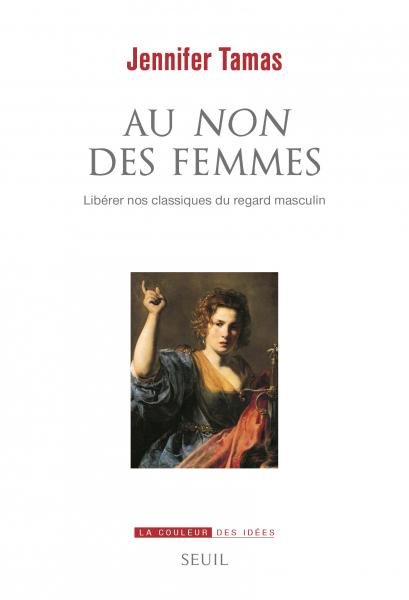I am a Professor of French at Rutgers University (New Jersey, USA).
My teaching interests range from the Old Regime to the French Revolution and explore the boundaries between passions and politics.
I left France in 2006 after I passed the concours to become a professor of Literature (CAPES and Agrégation de Lettres Modernes). I was granted a Fulbright fellowship to study in the USA.
I now hold a PhD from Stanford University (2013). My dissertation [A Revolution in Rhetoric: Claiming the Authority to Speak in Early Modern France (1643-1793)], explored the intersection between politic, religious and theatrical texts through the lens of “declaration.” I also hold a PhD in Literature and Stylistics from Paris IV Sorbonne (2012) [Dire et ne pas dire. Du silence éloquent à l’énonciation tragique des déclarations d’amour chez Racine]. This study focused on the implications of the unsaid in Racine’s dramaturgy.
Crédits photo, Bénédicte Roscot
Fellowships and Grants
Summer 2025: Recipient of the 2025 Albertine Translation Fund & Acquisition of Rights (to translate Au NON des femmes in English), Villa Albertine
Spring 2025: Recipient of the The Presidential Outstanding Faculty Scholar Award, Rutgers University
Spring 2023: Humanities Plus Award for a “Contemporary Challenge” course with early-modern texts
Spring 2021: Humanities Plus Award for envisioning a podcast series on Women’s Empowerment for a new course called ‘‘How the French Invented The Female Gaze: Early Modern Fairy Tales and Their Legacy’’
Summer 2021: Recipient of the COVID Impact on Scholarly Productivity Faculty Grant Program
Spring 2020: Recipient of the Presidential Fellowship For Teaching Excellence, Rutgers University
Spring 2019: Laura Bassi Fellowship (Book subvention)
Summer 2017: Research Council Grant, Rutgers University
2012-2013: Geballe Dissertation Prize Fellowship, Stanford Humanities Center
2006-2007: Fulbright Fellowship
2005-2006: Bourse d’Agrégation (French merit-based government scholarship)
Education
Licence, Maîtrise, DEA, Université Paris IV Sorbonne
Agrégation et CAPES de Lettres Modernes
Doctorat, Paris IV Sorbonne (2012)
PhD at Stanford University (2013)
Fields of Research
Feminist Theory (notions of agency, consent and resistance)
Theater (from the Antiquity to the 21st century) and Performance Theory
Focus on Racine and Early Modern Theater
Ghosts and Mourning in Old Regime
Eloquence of silence
Rhetoric of Human Rights
Motherhood and Childhood in Old Regime
The Sancho Project @Rutgers (with Rebecca Cypess)
Peut-on encore être galant? (Paris, Seuil, 2024) targets a broad audience, ranging from scholars interested in gallantry to anyone intrigued by a topic that encompasses both a lifestyle (“un art de vivre”) and a love discourse. It challenges myths surrounding French love history, linking galanterie to préciosité and framing it as a form of soft rebellion against forced aristocratic marriages. I examine its modern remnants, its misuse in contexts like the Strauss-Kahn affair, and its evolution from Madeleine de Scudéry’s ideal of female perfection to its later association with prostitution. The book also highlights the political and cultural dimensions of galanterie, showing how it contributed to France’s aesthetic dominance in Europe. While often reduced to stereotypes like “rape culture” or used to market French romance (e.g., Emily in Paris), galanterie was historically a dynamic space for women to negotiate gender relations, consent, and resistance. The book ultimately asks whether the principles of conversation, respect, and consideration from galanterie could inspire a new form of sexual civility today. It was just translated into Italian (Marietti, 2025).
My new book “Au NON des femmes. Libérer nos classiques du regard masculin” (Paris, Seuil, 2023) investigates how the “male gaze” prevailed in establishing the French canon and its reception. By selecting authors deemed essential to our literary heritage (patrimoine culturel) and by erasing the works of women writers, the patriarchal gaze also undervalued female agency in well-known works of fiction such as Andromaque, La Princesse de Clèves or Little Red Riding Hood. My close reading of early modern memoirs, fairy tales, novels, and plays reveals that many female refusals (be they historical or fictional) remain obscured. My study also unveils women’s resistance at a time when galanterie was at once a means of seduction and an ideal shaped by both men and women. If nowadays galanterie is under attack and if the #MeToo movement has brought questions of female agency and consent to the fore, this book retraces an “archive of refusal” as a possible source of inspiration to invigorate feminist discourse and change our reception of the French canon. Surprisingly, heroines of the Grand Siècle can empower us with accounts of their struggle and help us reclaim an undervalued literary matrimoine.
My monograph on Racine (Le Silence trahi. Racine et la déclaration tragique, Genève, Droz, 2018) reflects upon the notion of dramatic silence. Whether it results from a deliberate strategy or an inability to speak, silence is core to political ambitions, codes of civility, theatrical bienséances as well as religious practices. It represents the betrayal of an intention that needs to be clarified and that feeds the spectator’s interest. My study argues that Racinian tragedies represent the fight against an unbearable confession. Long hidden, concealed, unrevealed, it has devastating effects once it is unveiled. Drawing on this permanent tension between silence and declaration, Racine’s dramaturgy undermines the beautiful structure of Aristotelian poetics and imposes a new vision of the tragic.



